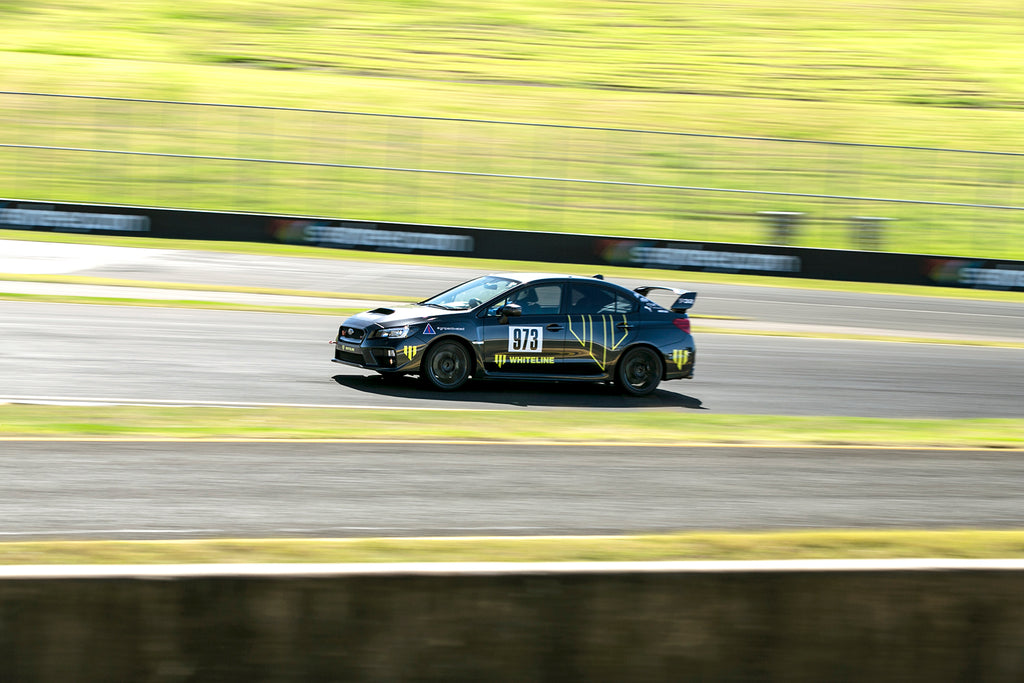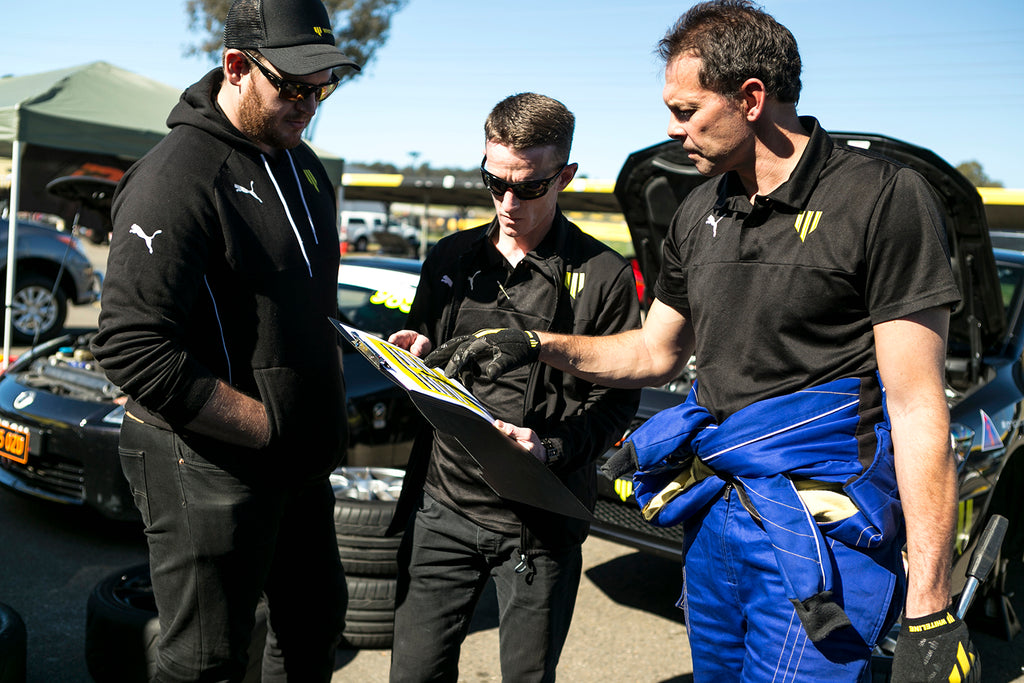The job of the suspension system is to maximise grip from tyres while maintaining acceptable ride quality for passengers. Our philosophy revolves around making the best of what the tyre has available, regardless of the individual tyre brand, quality, or size. Therefore, the aim of the suspension is to keep as much of the tyre on the road as possible when turning, braking, and even driving in a straight line.

One of the fundamental rules with tyre temperatures when taken with a pyrometer is that it is an approximation of how the tyre is behaving based on the varying inputs it is has been given at that point in time. It must be also said you will be forever chasing the perfect setup as were not dealing with constants here like temperature and frictional change, but like a blood pressure check is to the human body, analysing the tyre temperatures and pressures is to the vehicle in identifying that something is not quite right.

The first key parameter to ascertain is to get your tyre pressures pretty close to the optimum running pressure (HOT), this means starting off with a lower tyre pressure and bleeding it back when it’s hot if too high or adding pressure if too low. Once the tyres have cooled down this will be your optimum starting pressure on cold tires next time.
Different brands will all have their own operating temperature (HOT) range where they will be at their most effective so seeking this information from your tyre manufacturer is critical to getting the most out of the tyre to grip.
From here on in it’s a game of fine tuning, but don’t be mistaken - one that you will never win, there is no perfect setup right? This is why they call it a “Black Art”?. So with that being said multiple parameters will affect the tyre temperatures but we will for simplicity's sake review the effects of static alignment setup and focus directly on the Camber angle.
Provided you have the vehicle well balanced, it feels balanced through turns, rides the bumps well and feels settled from the varying inputs you throw at it we can look at the relationship of how the static camber effects the tyre temperatures.
The point to note here is that the tyre temps need to be taken as quickly as they can be as you exit the track as every second passes heat soak and dissipation across the tyre face distorts your results so the key is have an assistant to help in doing so.

Using a pyrometer, press the probe into the tyre face and take the temperatures across 3 points of the tyre face, the inner, the centre & the outer and record the results, doesn’t go astray to get the track temperature as well so you can start to build yourself a database of what is going on under varying conditions. They do say knowledge is power provided you know what to do with it.
Another good thing to remember is target the tyres that you think are of most importance first, for instance the track maybe predominately a left hand circuit orientation which is heavy on the front right tyre so you would want to target this tyre first and work your way around the vehicle as the un-distorted information from the tyre heat soak is of more benefit to you than the left side, it’s not to say that isn’t important just that the changes made on the left side don’t have as big a benefit to your overall setup as the right.

So with results in hand, and ensuring our tyre is in the optimum pressure operating range or close to it (This is the key here) we make the necessary changes required to the static camber angles on the wheel aligner to get that tyre running at the optimum temperature across the face.

Too hot on the inside face of the tire and too much negative camber, too much heat on the outside face and too little negative camber. Temperature even across the full face or close to it and we have a good static base camber angle that is working the tire evenly
Simple as that, not quite, as mentioned before there is a lot that effects how the tyres distribute their heat across the face of the tyre and the suspension is just the tuning tool on how we present the abuse expected of them. Provided we're happy with the overall feel of the car tuning the camber allows you to take advantage of what the tyre potentially is capable of.
Our Suspension Tuning Guide is packed with answers to common questions plus practical solutions to tuning your suspension for maximising grip.
Receive Your FREE Whiteline Suspension Tuning Guide


